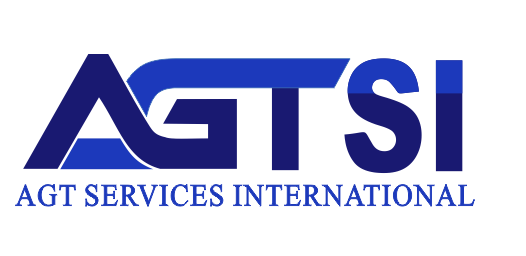Introduction:
In the constantly changing landscape of talent acquisition, organizations often find themselves in need of external support to simplify their recruitment efforts. Recruitment agencies provide different choices to meet specific needs and preferences. This guide, brought to you by our CEO Malik Faisal Arfat, a renowned recruitment expert and founder of AGT Manpower Recruitment Agency, is here to help you understand different types of recruitment agencies. We’ll look at what makes each recruitment type special and guide you through choosing the right recruitment firm. Let’s keep it simple and easy to follow.
Types of Recruiters:
- Internal Recruiters
- External/Agency Recruiters
- Staffing Agency Recruiters
- Executive Search/Headhunters
- Niche/Specialist Recruiters
- Contingency Recruiters
- Retained Recruiters
9 Types of Recruitment Agencies
Exploring different types of recruitment firms helps us understand each one better. From retained recruiters and contingency search firms to staffing agencies, RPO companies, internal recruiters, and niche firms let’s learn a bit about what makes each of them unique.
1: Retained Recruitment Firms: Executive Search Landscape
Retained recruitment is a strategic hiring method where companies pay a fee to a recruitment firm for exclusive access to their pool of candidates. This specialized service provides a customized search for the best candidates to fill open positions within the organization.
This refined recruitment process involves a joint effort between the organization and the retained recruitment firm. By applying their expertise, the firm identifies and gives qualified candidates, streamlining the hiring process for senior-level and executive roles.
Retained recruitment is like having a close partnership with a hiring expert. Businesses use this approach to access a recruitment firm’s connections and tools, ensuring they find the best talent. It’s great for organizations looking for a thorough and personalized solution for important hiring needs.
2: Contingency Search Firms: Transactional Excellence in Recruitment
Wondering about Contingency Search Firms? These firms usually assume a “No Win, No Fee” approach. In simpler terms, they provide their services for free until the moment the selected candidate officially joins the client’s team. This type of recruitment agency often leads to healthy competition, involving internal recruitment processes, advertising efforts, and sometimes even other recruitment agencies. The focus here is on delivering results, ensuring that clients only pay when the right talent is successfully placed.
3: Temp agencies: Dynamic Solutions for Temporary Roles
A temp agency, or temporary staffing firm, serves as an important negotiator connecting job seekers with companies in need of short-term employees. These agencies specialize in providing candidates for simple, entry-level positions that require minimal training. If your business has sudden increases in demand or needs temporary staff for different reasons, using a temp agency is a smart solution. It facilitates the effortless hiring of short-term workers, addressing direct workforce needs efficiently. Examples of temp recruitment agencies in the online realm include platforms like Fiverr, Upwork, and Freelancer.
4: RPO Companies: Revolutionizing Recruitment Processes
Recruitment Process Outsourcing (RPO) is a creative approach to simplifying recruitment processes within a business. RPO, short for recruitment process outsourcing, involves outsourcing part or the entire recruitment process to a third-party specialist. This strategic business model aims to gain several benefits, including cost reduction, improved quality of hires, improved efficiency, superior service delivery, and growth potential advantages. By collaborating with an RPO provider, companies can optimize their recruitment processes, providing a more cost-effective, efficient, and high-quality approach to talent acquisition.
5: Internal Recruiter: Leveraging In-House Expertise
Inside a company, there are people called internal recruiters. They work in the human resources department. These recruiters are important because they check how well current employees are doing and try to find people to fill job openings from within the company. They might do this by promoting current employees or helping them move to different positions within the company. This internal recruitment process, run by reliable personnel familiar with the organization’s culture and changes, is an effective strategy for companies with ongoing staffing requirements.
It offers a cost-effective and quick means of acquiring talent while using in-house expertise. The internal recruiter’s focus on existing personnel improves the potential for smooth cultural unity but may present challenges in terms of expanding the candidate pool and navigating internal conflicts.
6: Niche or Specialist Recruitment Firms: Targeting Specialized Talent Pools
Specialist recruiters, or niche recruiters, are trained at identifying gaps in the job market and understanding which skills cost premium value, resulting in higher profit margins. Their dominance extends across various sectors, making them key players in the recruitment landscape. These recruiters possess a detailed knowledge of specific industries, allowing them to identify top talent efficiently. Their expertise not only benefits businesses but also provides candidates with helpful insights and opportunities. Niche recruiters play a key role in hiring by understanding market trends and valuing skills. This makes them influential in various industries.
7: Traditional Recruitment Agencies: Exploring the Established Path
Traditional hiring agencies typically operate on a contingency-based payment system and are considered the foundation of the recruitment process. They carefully match candidates with positions and often include a refund and replacement scheme. These agencies are criticized for potential weaknesses, but they rely on established methods such as reviewing resumes, conducting phone interviews, and using behavioral assessment tests. Traditional recruitment methods need to adapt to changes in the job market for continued effectiveness. In the earlier era, job seekers heavily depended on classified ads in newspapers, job boards, and word of mouth.
At the same time, recruiters spend a lot of time going through resumes and having face-to-face interviews to find the best candidate for the job. This historical background highlights how recruitment methods have changed over time and highlights the importance of being flexible in today’s ever-changing job market.
8: Staff augmentation:
Staff augmentation, often employed as an outsourcing strategy within the tech industry, involves companies contracting agencies to improve their workforce and skill set by including external software engineers. This approach allows businesses to increase their existing team with technical professionals for temporary or project-specific needs. Staff augmentation agencies play an important role in connecting companies with skilled software engineers, ensuring access to specialized expertise without the long-term commitment associated with traditional hiring. This strategy is especially dominant in the active tech landscape, where projects often require specific skills for limited durations and staff augmentation provides a flexible solution to meet these demands.
9: Headhunters Recruitment Agencies
Headhunters, also known as executive search firms, are professional recruiters who specialize in finding and hiring highly qualified individuals for top-level positions in companies. They act as middlemen between employers and top-notch talent. Organizations hire these firms when they need to find the right candidates for important roles quickly. Unlike traditional job postings, headhunters use a targeted and proactive approach. They actively search for potential candidates, often looking beyond regular job listings. Headhunters may tap into talent pools or explore competitors’ landscapes to find individuals who closely match the job requirements. In summary, headhunters play an important role in connecting organizations with outstanding executive talent, making recruitment more productive and strategic.
Finding the Right Fit for Your Business
With the diverse array of recruitment agencies available, selecting the right fit for your organization requires careful consideration. Identifying your recruitment needs, understanding available resources, and establishing a budget are essential steps in this process. Whether opting for the specialized services of a niche firm or the transactional efficiency of a contingency recruiter, aligning the agency’s approach with your organizational goals is key.
Final Thoughts:
In summary, the job market has different types of recruitment agencies to help companies find the right people. Each type serves specific needs, so it’s important to understand them. This guide breaks down the complexities of recruitment firms, making it easier for businesses to choose the right fit. Remember, hiring isn’t just about filling roles; it’s about setting the stage for long-term success. So, explore the various types, find what suits your needs, and happy hiring!
This guide simplifies the types of recruiters, making it accessible for those seeking to enhance their hiring strategies. Whether you’re a business or someone looking for a job, understanding these agencies is key. So, dive into the recruitment firms, find the right match, and set the groundwork for steady growth. Good luck!



















